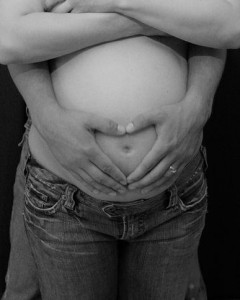Even for those who may already consume a healthy diet,  becoming pregnant requires that some changes will need to be made to your eating habits. This is in large part due to the fact that additional nutrients are necessary for both the changes taking place in your own body as well as for the growing baby.
becoming pregnant requires that some changes will need to be made to your eating habits. This is in large part due to the fact that additional nutrients are necessary for both the changes taking place in your own body as well as for the growing baby.
Some adjustments may include the avoidance of some types of foods altogether, although these eating-related revisions will not require that you adhere to a stringent regimen. In fact, unlike some of the fad diets of the past, your eating over the next nine months will primarily consist simply of making better overall food choices.
Easy Ways to Detox in the Food and Beverage Area
Detoxing your diet for a more healthful pregnancy can actually be done by using just some simple steps. These include:
● Avoiding Foods that Contain Chemical Additives – Even though many of today’s food additives are considered to be safe, those foods that contain chemicals are not typically healthy choices to begin with. For example, artificial sweeteners and other types of additives can actually be harmful to the fetus after they cross the placenta. So you may want to avoid the foods in this category altogether if possible.
● Opting for Brown Rice and Whole Grain Foods and Breads versus White – Whole grains versus white bread and rice are considered to be much healthier in general – and especially for pregnant women – based on the fiber that provides energy and helps to avoid constipation (a common problem of those who are expecting).
● Drinking Plenty of Water – Most of us don’t drink enough water, but for pregnant women, it is essential to drink at least three liters of water each and every day.
● Consuming Organic Fruit and Veggies When Available – Although the organic options at the grocery store are typically more expensive, studies have shown that these fruits and vegetables have lower levels of pesticides in them than the regular variety. This can be extremely important for pregnant women as fetal exposure to certain chemicals is dangerous to the developing baby.
● Limiting Salt Intake – Your intake of salt and your retention of water are very closely related. In fact, for some mothers to be, a high intake of sodium could lead to potential complications with the pregnancy such as high blood pressure. Some of the foods to avoid in this area include those that are highly processed such as canned soup and frozen dinners.
● Eating Hormone-Free and Grass-Fed Poultry and Meats – When pregnant, it is important to consume a variety of foods that are rich in protein – and a great source of that comes from hormone-free poultry and meats. Protein can also be obtained through eating nuts, beans, and various types of soy products.
● Limiting Your Intake of Fish – Although the omega-3 fatty acids that are found in fish are a good source of nutrition for pregnant women and their growing babies, it is a good idea to have seafood in moderation as it can also be contaminated with tonic and mercury.
Once you have a handle on what types of foods to avoid and which to increase in your diet, eating can still be a source of enjoyment – while also being a great way to help your baby develop in a healthy manner.
Janet Lynch is a writer and fitness enthusiast. She is also a big fan of diet delivery food to help her stay on track.
 Posts
Posts
This is a helpful reference indeed, I want to balance my wife diet since she’s currently 3 months pregnant now. I already listed the advice you mentioned and start a meal plan for her! Thanks for the time for writing this up.